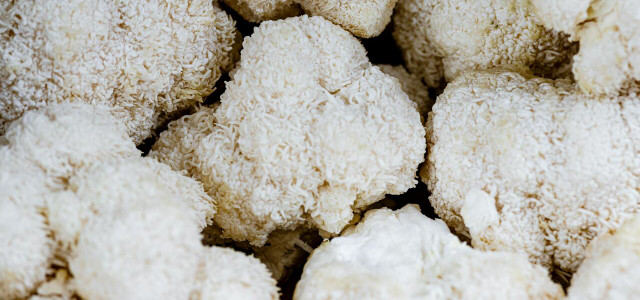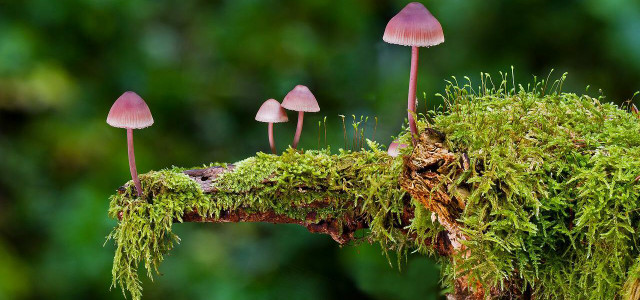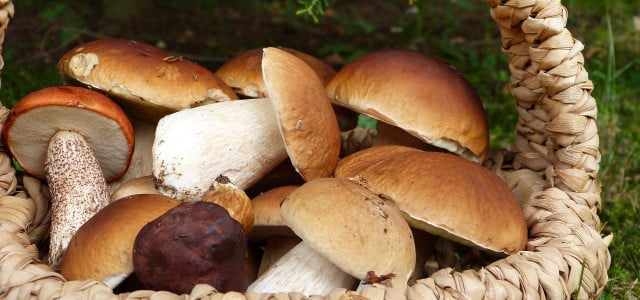The lion’s mane mushroom has garnered attention for being both a key food in healthy eating and for its health benefits as a natural remedy.
As its unusual name suggests, the lion’s mane is a large, white edible mushroom with a hairy appearance found in forests across North America, Europe, and Asia. In particular, this mushroom has gained a reputation worldwide as an ingredient in food and a source of vitamins and minerals.
So, where can we buy or gather this mushroom? Generally, lion’s mane can be found in temperate hardwood forests or around dead and decaying trees. If you don’t live near a forest, you could also grow your own at home with the help of an all-in-one mushroom growing kit, like this one from Sundreams Farm.
In terms of buying this mushroom, although found most commonly in Asia, the lion’s mane can also often be found in the U.S. in supermarkets like Whole Foods (or Whole Foods alternative) or any other local health food market or specialized health food store.
Read on to learn about the benefits of lion’s mane mushrooms, as well as some suggestions on how to use them.
Health Benefits of Lion's Mane Mushrooms

(Foto: CC0 / Pixabay / SplitShire)
The lion’s mane mushroom can be useful in maintaining a healthy diet. It contains a high percentage of antioxidants and has been reported to help boost your immune system. However, despite not being psychoactive, this mushroom may also help alleviate mild symptoms of anxiety and depression that may be preventing you from fully relaxing. Despite lacking full scientific evaluation, there is also some support for the idea that this mushroom can improve your overall cognitive function.
From a culinary perspective, the lion’s mane is a versatile ingredient. A highly absorbent mushroom, it can be used both as a meat substitute that is easy to season, as well as act as a good source of protein and fiber. For more suggestions of meat substitutes like the lion’s mane mushroom, try our guide to understanding plant-based meat alternatives.
However, as with taking any supplement or vitamin, being aware of this mushroom’s possible side effects is also important. Overall, lion’s mane is not known to have severe side effects, yet little is still known about its effects in the long term or what the standard dosage of this mushroom as a supplement should be. Because of this, it is advised that you consult with your doctor or health provider before incorporating lion’s mane into your diet.
How to Use Lion's Mane Mushrooms



(Foto: CC0 / Pixabay / Pexels)
Lion’s mane mushrooms can be used for both nutritional purposes and as a natural remedy. Here are a few examples of ways that you can incorporate this mushroom into your daily routine.
- To Flavor Herbal Tea: As a supplement, the powdered form of lion’s mane can be mixed or drank with hot water alone to give your favorite calming herbal tea variety additional flavor.
- In Vegan and Vegetarian Recipes: The lion’s mane mushroom can not only be used as a delicious substitute for meat but can also be a fun ingredient to add to your favorite vegan or vegetarian recipes like vegan chop suey, or buddha bowls.
- As a Raw Superfood Supplement: In its powdered and pill form, lion’s mane is easily available to buy from major retailers. As a daily supplement, this mushroom can be a vital source of nutrients and vegetarian plant protein, both of which are important to consider when keeping a vegetarian or vegan diet.
- In Alternative Coffee Recipes: Lion’s mane as a powdered supplement can be ground with coffee beans or cacao to create a coffee substitute with a unique nutty undertone.
Read more:
- Plastic-Eating Mushrooms: They’re Real (& Some Are Edible)
- 15 Easy Vegetarian Camping Meals
- Herbs to Plant Together: Companion Planting with Herbs
Do you like this post?








